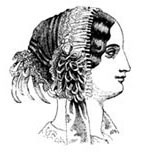
Why I Am a Feminist
ON A WOMAN'S RIGHT TO BE A WOMAN
Lest the title of this article cause confusion, let me begin by emphasizing that I am a feminist. My life as a feminist started at about the age of five, when I first began to admire my mother. And my feminism increased as I came to appreciate my sisters. At the time, I could not define the elements of that appreciation; but I did realize that there was something different about women and girls, and somehow I admired that something.
Then I entered into my teens, and girls entered into my life in a new way, a way that changed, and to some extent disturbed, my incipient feminism. I heard part of my reaction expressed not long ago in a mentoring session with a 14-year-old boy. He was from a good family background with the distinctive note that his five siblings were all boys. As we were ending our chat, I sensed there was still something on his mind, so I asked him, “What is it?”
He looked at me, and solemnly enunciated, “Girls!”
Slightly amused, I asked him, “What about girls?”
He looked at me again and answered quite slowly, “They puzzle me.”
I gave him a few possible clues to the puzzle but didn’t really try or want to solve it. I had had the same experience myself and thought it a good start to a healthy sexual outlook.
When I was a teenager I lived in a residential area on the outskirts of my hometown in Ireland. Three or four large families, with six, seven, or eight children, lived close by. As a result, my social life was spent in the company of fifteen or twenty boys and girls all in the 15-18 age range. I admired the girls I knew, and now and then imagined I might eventually marry this one or that. I admired them — and I respected them. They made themselves respected. “Bad” thoughts were directed elsewhere. One would feel ashamed to allow a bad thought toward a girl who inspires respect. Modesty, which was then not an unbecoming term, especially on the part of these girls, made purity easier — though never easy. It drew out a noble impulse which helped so much. In another recent mentoring session with a 16-year-old boy, I described, a little more at length, the atmosphere of my teenage social life. When I had finished, he observed, “I wish I had grown up in your times.”
You May Also Enjoy
Francis: Man of Prayer... A Call to Serve: Pope Francis and the Catholic Future... Pope Francis: The Pope from the End of the Earth
In blurting out his opinion of the supposedly wonderful and God-gifted diversity of religions in a slapdash manner, Francis does great injustice to the Catholic religion.
Pope John Paul II wrote that we live our earthly lives in the gap between the person we are and the person we ought to be.

